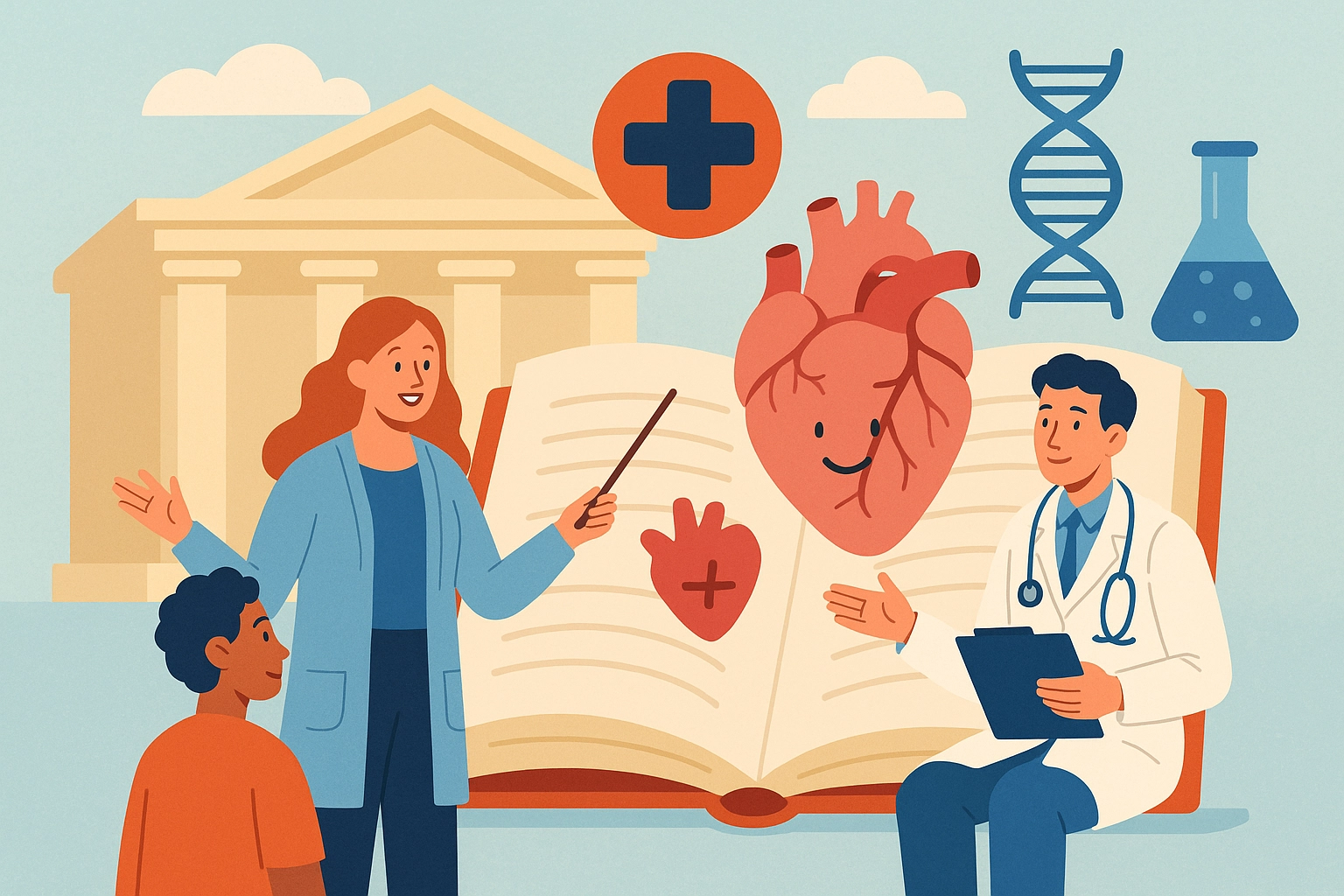
Why Classical Education Needs a Health Companion
Vitae reclaims the physical body as an essential part of Christian formation—rooted in design, disciplined in virtue, and essential to the life of the mind and soul.
For centuries, classical education has formed students through the pursuit of truth, beauty, and goodness. It taught grammar, logic, rhetoric, and mathematics—not merely to convey information, but to shape the human soul in harmony with creation. But in today’s world, this tradition has been fractured. While many schools recover the intellectual rigor of classical methods, few have addressed a glaring omission: the formation of the body.
Modern health education, where it exists at all, is often shallow, ideological, or disconnected from the Christian worldview. Children are taught about food groups and fitness but left unmoored when it comes to meaning, identity, and purpose. Many schools simply skip health altogether, outsourcing it to gym class or sidestepping it to avoid controversy. The result? A generation of students who may read Homer but have no idea how to steward their own embodiment.
Restoring the Body to the Formation Table
Classical education—if it is to be truly classical—must engage the whole person. The Greeks believed in paideia, the full formation of body, mind, and spirit. The Church Fathers affirmed that the human person is a body-soul unity, created by God and destined for glory. To ignore the body in education is to distort the image of man itself.
Vitae exists to correct that imbalance. We don’t simply provide health content—we elevate health as a liberal art. We treat the body not as a problem to solve, but as a revelation to ponder. We teach students to see physiology as a study of divine craftsmanship, and movement as a discipline of the will. We train families to re-integrate physical care with spiritual practice, replacing shame and confusion with clarity and reverence.
Health as a Liberal Art
In the classical tradition, the liberal arts were the disciplines of freedom—those that equipped a person to govern himself and serve the common good. Today, we add to this tradition by proposing a ninth liberal art: health formation. Not health information. Not wellness trends. But true formation in how to live as a Christian in the body you’ve been given.
Students using the Vitae curriculum encounter one part of the body each week, along with its moral, theological, and scriptural implications. They learn that the hands are for blessing, the heart for sacrifice, the feet for mission. They memorize anatomy not as trivia, but as testimony. Movement becomes a liturgy. Stillness becomes a prayer.
And most importantly, this formation is not theoretical. Our telemedicine network supports it. Our consultations reinforce it. Parents aren’t left to navigate health concerns alone—they’re empowered by physicians and nurses who speak the same language of faith and formation.
How This Changes the Game
With Vitae, your school or homeschool doesn’t just check a health education box. You offer something radical: a return to incarnate truth. A healing of the split between head and heart, intellect and instinct, doctrine and discipline. In a world where children are taught to distrust their bodies, Vitae invites them to listen—to learn—to love their design.
Imagine a high schooler who understands not just reproductive anatomy, but the theology of fertility. A middle schooler who sees nutrition as an act of gratitude, not control. A kindergartener who knows that his body is good—even before the world has a chance to confuse him. That’s the vision. That’s what we’re building. And that’s why classical education needs Vitae.